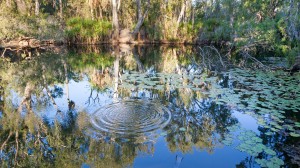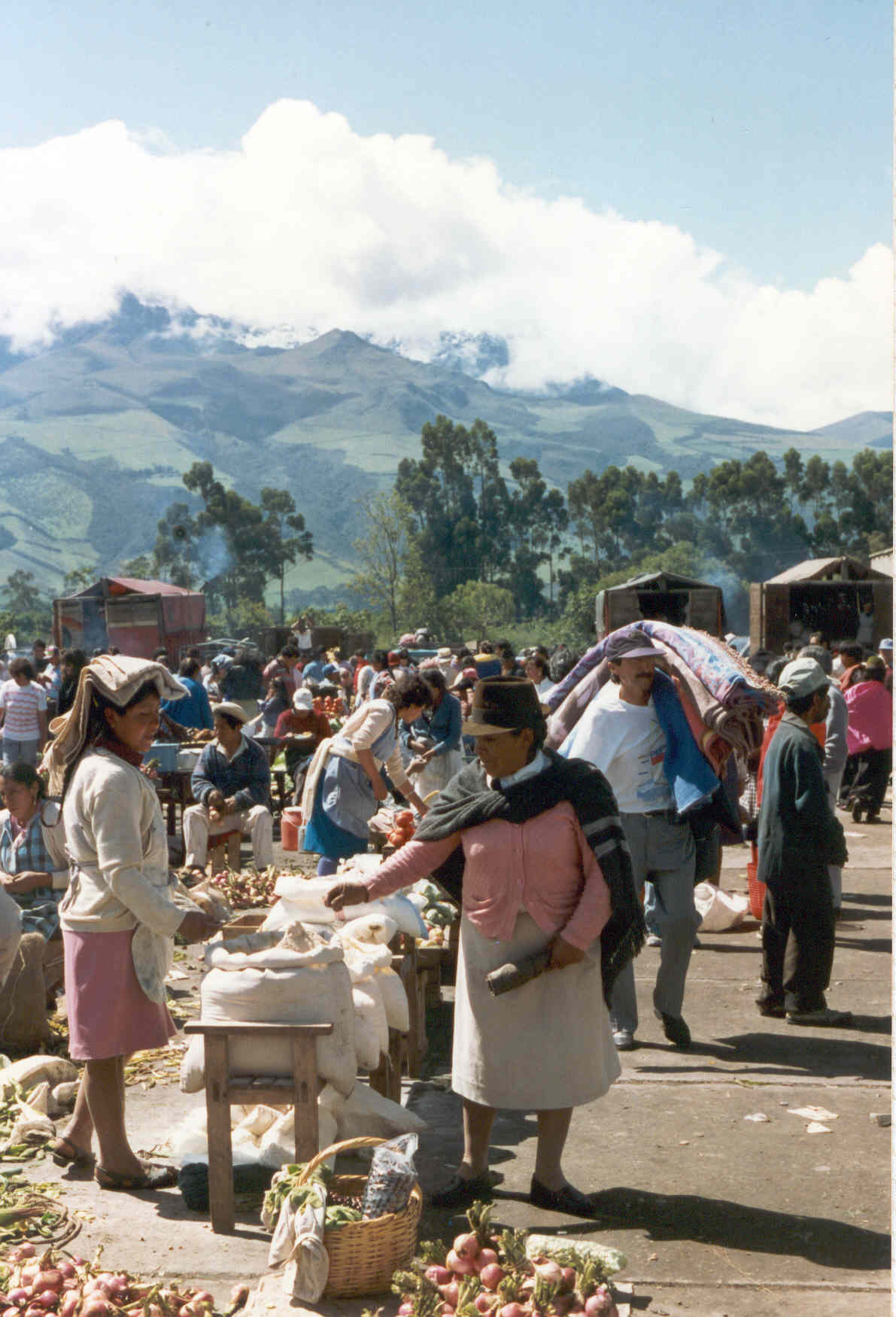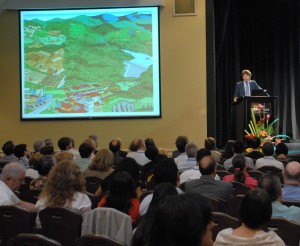Forests and Water
Forests and Water
Science-Policy-Practice Interface for Managing Forest and Water Interactions under a Changing Environment
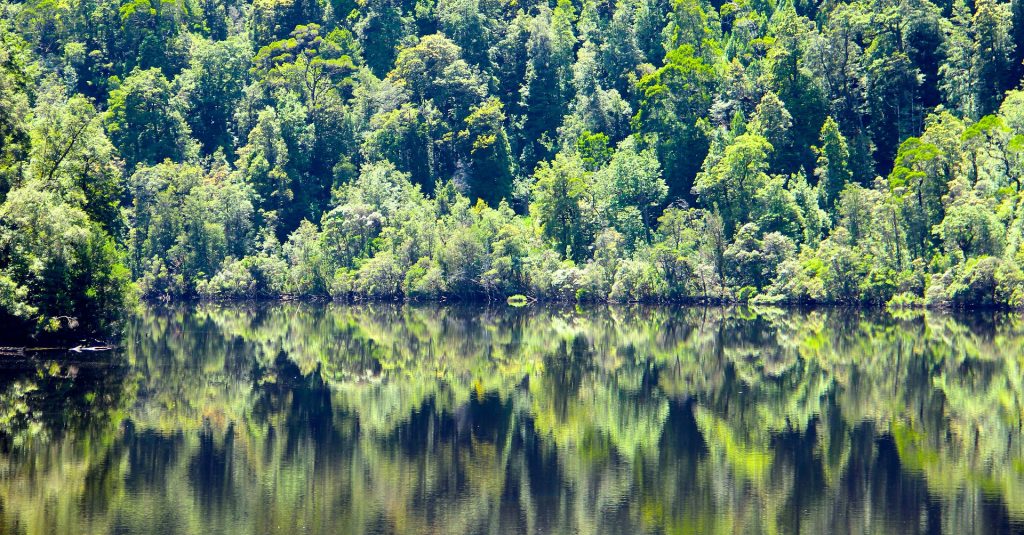
Water is fundamental to life on earth. What may not be quite so obvious is that forests are equally vital resources for life on the planet.
And the two – water and forests – are inseparable in the pursuit of a sustainable and sustainably developed world. Therefore, forests and water resources have been identified as essential elements in adaptation to climate change.
Read more…How will the Sustainable Development Goals affect forests and people?
How will the Sustainable Development Goals affect forests and people?
Since Agenda 2030 was launched in 2015, plenty of attention has been paid to the contributions which forests can make to its 17 Sustainable Development Goals (SDGs). However, relatively little attention has been given to the possible impacts which the SDGs will have on forests, forest ecosystems and people benefitting from forests, and how this might contribute to, or undermine, the role forests play in improving human well-being and protecting the environment.
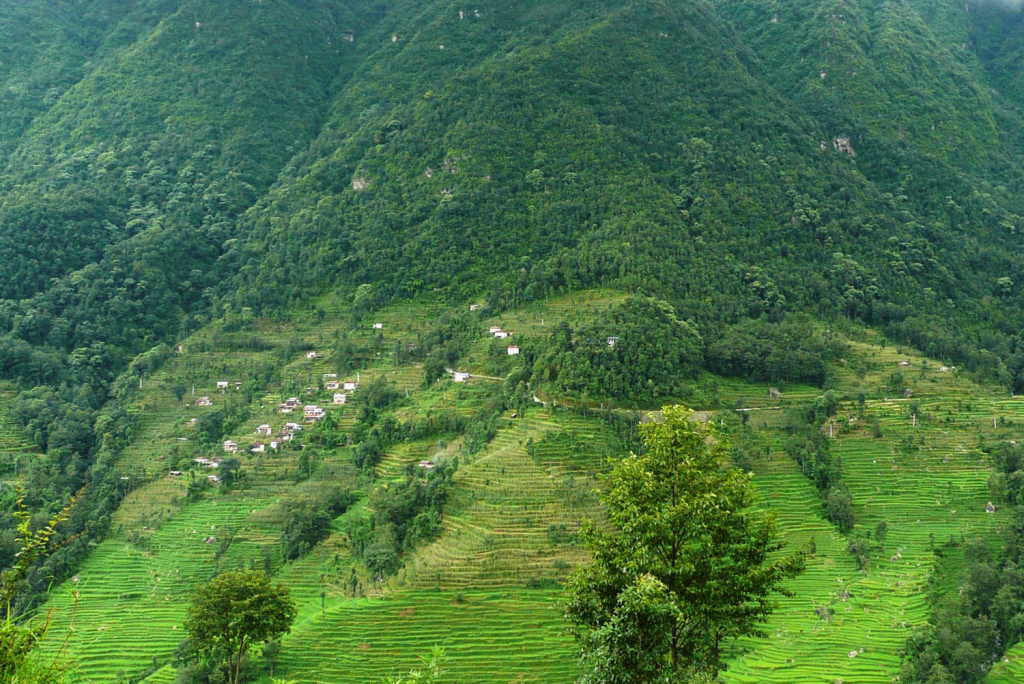
A Conversation with a Conservation Leader: John Parrotta
John Parrotta, the national program leader for international science issues in Forest Service Research and Development, is a co-author of “Forests, Trees and Landscapes for Food Security and Nutrition: A Global Assessment Report” recently released by the International Union of Forest Research Organizations, or “IUFRO.” The report says that although conventional agriculture will remain the major source of food for people around the globe, the link between forests and food production and nutrition could be a key to ending world hunger. Read more…
Spotlight #33 – Connecting the Dots among Forests, Soils and Water
When one thinks of forests, the immediate thought is most likely of trees. That makes sense.
But forests and trees don’t exist in isolation. Things that affect – and are affected by – forests range from human activities to climate; from water and soils to insects and disease and from economics to forest products, to name just a few.
With that in mind, the IUFRO 2015-2019 Strategy focuses on five research themes: Forests, Soil and Water Interactions; Forests for People; Forests and Climate Change; Forests and Forest-based products for a Greener Future; and Biodiversity, Ecosystem Services and Biological Invasions. Read more…
Food production without forest destruction – is it possible?
Is there a chance of providing enough food for 9 billion people on earth and at the same time ensuring that natural resources such as forests, soil and water are not depleted or destroyed and climate change impacts are not aggravated? This is the main question that the Global Landscape Forum will address in the coming two days in between the first and the second week of the COP19 climate negotiations in Warsaw.
 One day ahead of the GLF, a distinguished panel shared their thoughts on the Global Landscape Forum’s goals and importance to international climate discussions and negotiations at a press briefing.
One day ahead of the GLF, a distinguished panel shared their thoughts on the Global Landscape Forum’s goals and importance to international climate discussions and negotiations at a press briefing.
New expert panel assesses linkages between forests and food security
Forests play a major role in achieving Millennium Development Goal 1 to eradicate extreme poverty and hunger and in striving for food security. Globally, millions of people depend on forests for their food security and nutrition, directly through the consumption or sale of foods produced in forests, indirectly through forest-related employment and income, forest ecosystem services, and forest biodiversity.
Current approaches to increasing food security tend to concentrate on agricultural solutions, ranging from intensification of agricultural production outside of forests to promoting agroforestry systems. Policy recommendations to establish a framework for promoting food security from forests, however, have so far been rather general and no framework addresses the relationship between forests and food security directly.
The “International Conference on Forests for Food Security and Nutrition”, held at FAO Headquarters in Rome in May 2013, inter alia conveyed the key message that forests, trees and agroforestry systems demand greater attention in strategies for food security and nutrition and in the fight against hunger. It also called for improved data collection at national and international levels.
IUFROLAT Inaugural Address: Climate Smart Territories
Jose J Campos, Director General, CATIE, took centre stage once again giving an inspiring presentation entitled, “Climate smart territories- fostering production, resilience and reduced emissions through socially inclusive land management.” He opened by saying that it is important to think and to work on the territorial level. We should strive to optimize the goods and services in a territory, and to craft a vision with the different players in a territory. It is possible to diversify the economy and recover forest coverage, and noted that countries such as South Korea, and Finland are already doing so.
He stressed what is needed is collective actions from stakeholders; to give a positive result in a territory and ensure that we can improve our landscapes. He noted that this will take indigenous knowledge, new technologies, increased research and time, and it is important not to be spontaneous in how we approach the problems.
Key messages from his presentation include:
- Global challenges increasingly threaten human security; climate, food, water, energy, etc.
- System approaches (livelihoods, territorial, sustainable production and value chains) could effectively manage synergies and trade-offs among global challenges.
- There is a need for collective action through effective local governance and co-management of natural resources.
- “Climate smart technologies” are a tool that links top=down and bottom-up actions for collective impact.
He continued to explain that we do not need to reinvent the wheel. We need to find territories and existing projects to use as a model. He finished by saying that the key to this is in future professionals and in new interdisciplinary science. He stated there is a need to link students to ongoing development initiatives through fieldwork and case studies, to link their education to research, to local development processes and their contributions to society. If we work together we can create a virtuous circle for inclusive and sustainable human well-being.
Third IUFRO Latin American Congress IUFROLAT III
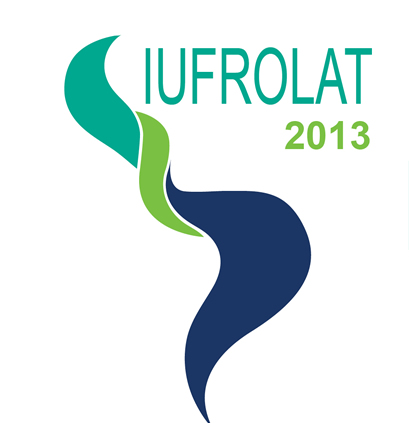
12-15 June 2013
San José, Costa Rica
Congress website: http://www.web.catie.cr/iufrolat/Iufro_ing.htm
This blog will present highlights and impressions from IUFROLAT III, the Third IUFRO Latin American Congress which starts today in the city of San José, Costa Rica and will run until Saturday, 15 June 2013. The Congress has been organized together with CATIE, the Agricultural Research and Higher Education Center, RIABM, the Iberoamerican Model Forest Network, FAO and several IUFRO members in the region. The overall theme of the Congress is “Forests, competitiveness and sustainable landscapes” and one of its major goals is to place relevant science-based information at the disposal of decision makers.
With up to 600 expected participants, IUFROLAT III has exceeded all expectations and has outnumbered previous regional Congresses by far. This clearly shows the extraordinary interest and need of scientists in Latin America to share and exchange information on the issues that are high on the agenda in the region concerning forest and landscape management, ecosystem services and climate change adaptation and mitigation, among others. The Congress languages being Spanish, English and Portuguese will further contribute to ensuring an excellent exchange of knowledge and experience.
IUFRO is placing particular emphasis on strengthening forest-related research in regions. Regional congresses are aimed to promote quality research as well as maintain the momentum of IUFRO activities in the five-year periods between IUFRO World Congresses in a certain region.
The great success of previous regional congresses, especially the First African Regional Congress held in Nairobi, Kenya, almost exactly one year ago, have confirmed the great need for IUFRO’s focusing on defined geographic areas. The first two IUFRO Latin American Congresses in Valdivia (1998) and La Serena (2006), both organized by INFOR, the Forest Research Institute of Chile, and the European Regional Congress that took place in Warsaw, Poland (2007), are further excellent examples.
IUFRO Board Meeting
Right before the Congress, the IUFRO Board (http://www.iufro.org/who-is-who/board/) held its annual meeting and important issues concerning the future of the network, its leadership, venues of world congresses and strategic guidelines are on the agenda. The decisions made at this Board meeting will pave the way for the next Board term starting after the next IUFRO World Congress in October 2014 in Salt Lake City, USA (http://www.iufro2014.com/).
IUFRO-SPDC Pre-Congress Training Workshop: Communicating Forest Research – Making Science work for Policy and Management
San José, Costa Rica, June 9-11
Prior to the Congress, IUFRO’s Special Programme for Development of Capacities (IUFRO-SPDC), formerly known as the Special Programme for Developing Countries in coordination with CATIE, carried out a training workshop for early-career scientists from the Latin American Region to strengthen capacities and skills in forest science communication. The workshop brought together 16 participants from 11 regional countries.
One attendant, Eduardo Lopez Rosse from CIDES-UMSA and UMSS-Trópico, Bolivia, expressed his thoughts on the workshop. “The workshop was a great experience… I learned how to transmit scientific information outside the academic arena to other stakeholders, municipalities in my country, as well as to the general public.”
Another scientist, Mariana Moya, Extension Advisor at the Facultad de Agronomía, Universidad de Buenos Aires of Argentina had this to say, “We have a lot of people in Latin America working intensively with small farmers, with aboriginal communities, and we must communicate with governments, private companies, and different kinds of social organizations. It is helpful to me to see experiences from people who work in Brazil, Chile, Panama, and how they are communicating in their extension programs.”
The workshop which concluded today was an excellent demonstration of the SPDC’ capacity development efforts in building strengthened communication of forest research in a region.
It is important to note that IUFRO-SPDC through generous contributions by the Governments of Finland, Germany and the United States of America as well as the Center for International Forestry Research supports a total of 66 scientists in the framework of the Scientist Assistance Programme to attend the IUFROLAT Congress, bringing scientists who otherwise may not have had the opportunity to come to such an event.
Information about the Training Courses and IUFRO-SPDC:
http://www.iufro.org/science/special/spdc/

